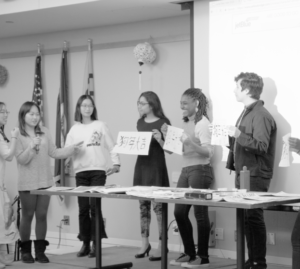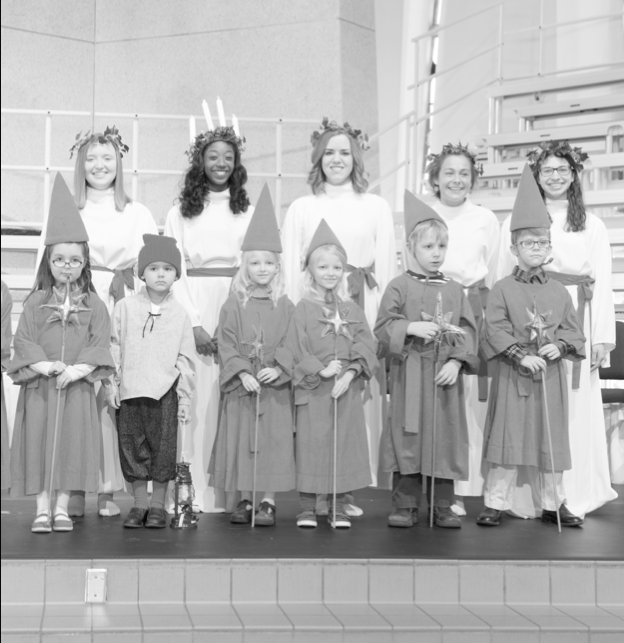For a Swedish Lutheran college in the Midwest, Gustavus has a pretty impressive variety of cultural events on campus.
Our student body may not be as diverse as our mission statement likes to claim, but those students who are from a variety of ethnic backgrounds still manage to have a strong voice when it comes to their student organizations.
As a frequent attendee of events like Africa Night, Lunar New Year, and Latinx Night, I am rather proud of how supportive Gusties are of their classmates who hail from places all over the world.
The number of seats filled at these events is really telling of our want to have better understanding of other traditions and people.
But I can’t help but worry if this motivation to attend such cultural events will continue after graduation.
It’s easy to slip into the mindset of “It’s free, so I might as well go” during college, because there are so many things that the saying applies to with the amount of activities put on year round to encourage student participation.
But this is also a difficult mindset to get out of.

Going to an event just because it’s free loses the value of what that event represents and what each person could be getting out of attending it.
This doesn’t mean Gustavus and other colleges should start putting price tags on every event for students – please don’t, we’re in enough debt as it is – but it’s important to be aware that the majority of the world is not free and people have to be pickier about where they choose to spend their spare time.
After graduation, most will have to cut down on the number of events they attend, but local cultural events should not be one of them.
“Why spend money to hang out with strangers when you could relax with a few drinks at a local bar,” you might ask.
The most obvious answer is that it’s educational.
Like it or not, we never stop learning after school, so it might as well be by doing something completely out of the norms of personal daily life.
These cultural events help broaden people’s minds of what “normal” really is, because that word carries different meanings depending on what part of the world someone is in.
Learning about different customs helps form better understanding between different peoples and cultures.
Even if someone is highly educated on a particular area of the world, it is likely they will still find something new to admire at an event representing it.
For those interested in traveling abroad sometime in the future, cultural events provide a great opportunity to get a taste of different parts of the world.
They certainly can’t accurately represent every aspect of a country or even city, but it can still be helpful in deciding where you’d like to further explore.
Everyone should set foot in another country at some point in their life and it can be helpful to have something like a local celebration to spark the curiosity of your inner traveler.
These cultural events are an opportunity for immigrants and exchange students to feel closer to home and sharing it with them will only help them feel more welcome.
I spent half a semester on the island of Malta with my family when I was twelve and the change from my quiet Minnesota life was very disorienting.
While it was exciting to meet people from the other side of the world and learn about their culture, after months abroad it became inevitable that I missed certain parts of home.
While it’s not the same as what most out-of-country people experience in America, since I was with my family the whole time and knew I would be returning home eventually, I do know that a whole new culture is a lot to take on when you’re not accustomed to it.
Bonding over cultural similarities and discussing differences helps the world feel a bit smaller and much less intimidating.
Most of all, these cultural events are meant to be fun.
Every summer in my home town I attended the local Scandinavian Festival and there was always plenty of dancing, games, and music to keep my sister and me occupied.
The hosts of these events want guests to enjoy their culture as much as they do, so there is almost always activities and performances for people of all ages.
Even more amazing is the food.
It may not be free, but there is nothing that visualizes a country quite like the smell and taste of ethnic cooking.
Of course, to experience any of this, one does have to be on the lookout for local events because they usually aren’t advertised as well as the ones on campus.
Drop the tv remote and cancel that restaurant reservation because there’s a whole world to be explored by just heading across town or even down the street.
America, like Gustavus, is more than its Western-European surface and we should celebrate that.
